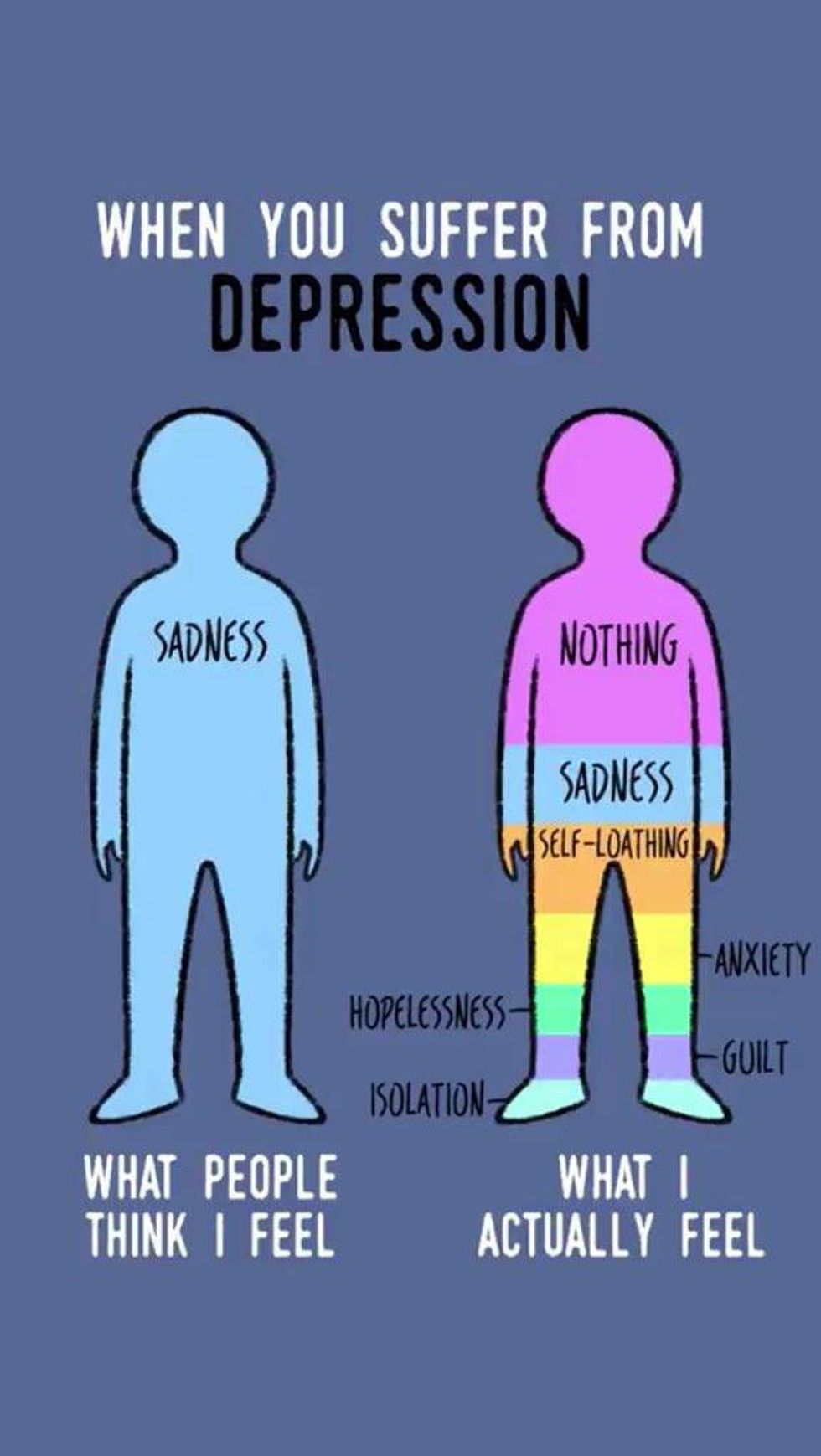As someone who struggles from a variety of mental health issues, I'm an advocate for raising awareness about mental health issues. Life has its challenges, but struggling with mental health issues, things can be much harder. Certainly, even though who are fortunate enough not to struggle with mental health issues can benefit from taking the time to understand mental health issues. According to the National Alliance on Mental Illness, approximately 61.5 million Americans experiences mental illness in a given year- to put that into perspective, this means that one in four adults experiences mental illness. For those struggling with mental illness, for those struggling to help a loved one cope with mental illness, and for those struggling to understand mental illness, here are some reminders.
1. It's Okay to Feel
Don't ever let someone tell you that your feelings aren't normal. It's okay to feel sad when you have a bad day, it's okay to feel anxious about an upcoming event, and it's okay to feel happy over an accomplishment. Embrace your feelings so that you can deal with them- don't bottle them up.
2. You Are Not Dramatic
(Source: http://ok2talk.org)
There are a lot of stigmas surrounding mental health. For me, the most ridiculous is the assumption that depression just means that you're sad all of the time. Mental health affects each individual differently. Those who struggle to understand mental illness often generalize illnesses and conclude that people who struggle with illnesses are dramatic or need to "get over it because it's not that bad." You are allowed to feel whatever you need without feeling like you're being dramatic.
3. It's Okay To Get Help
There are many warning signs of warning signs of mental illness. Just a few include feeling excessively sad or low, avoiding friends or social activities, and changes in sleeping habits or feeling tired and low energy. Life is hard and there is no way around that, but if you notice yourself or a loved one struggling to keep up with what they used to or changing completely, it's perfectly okay to get help for yourself or to lead them to help. Undiagnosed and untreated mental illnesses can lead to these symptoms becoming worse and could lead to suicide. There is nothing wrong with getting help- in fact, it could only help.
National Suicide Hotline: 1-800-273 TALK (8255)
JMU Counseling- Student Success Center - 540-568-6552
JMU Police - 540-568-6913
Dean Of Students - 540-568-6468
4. It's Okay to Feel As If People Don't Understand You
It's hard to talk about struggles with friends, family, and any other people that come into our lives. Close family and friends will try to help you, and though they may be trying their hardest, it's okay to feel as if people don't understand you- but remember that they are only trying to help. Of course, it's important to deal with your issues, but it doesn't always have to be how other people perceive you should deal with your issues. It's also healthy to ask for some space.
5. It's Not Your Fault
Mental illness isn't something that someone consciously chooses. It is a very serious disease and just because you can't "see" it like physical diseases, doesn't mean it is less important. No one chooses mental illness, it is a sickness that is extremely unfortunate. It's important not to blame yourself and is equally as important to not feel as if you were the unlucky chosen one. It's an obstacle that you can and will conquer with the proper help and support.



















